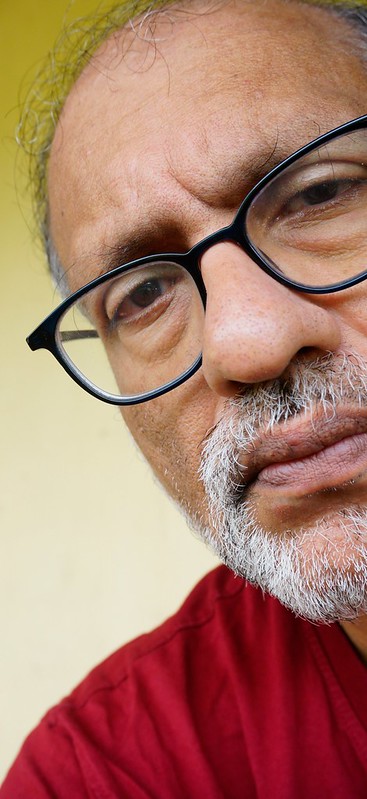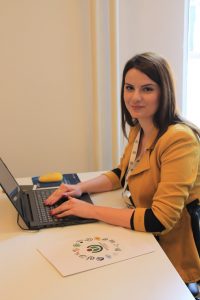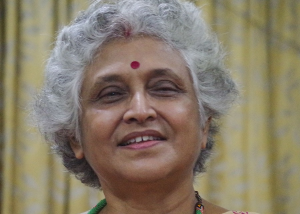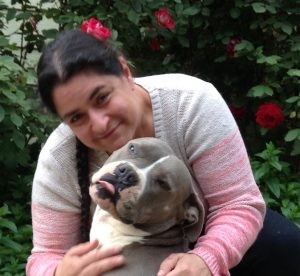Meet the CC Summit Presenter: Frederick Noronha
jeudi 2 septembre 2021 à 14:31
We’re back with another ‘Meet the CC Summit Presenter’ Q&A — next up is Frederick Noronha. Frederick is a journalist, alternative book publisher, Wikipedia’s Editor of the Week in March 2020, Free Software supporter, shared 66+K photographs under Creative Commons licenses, has served on the jury of the FSF Award for the Advancement of Free Software. One of the early online networking media-persons in India, since circa 1995. Frederick claim to fame — a two-letter Twitter handle @fn.
Based in : Goa, India
: Goa, India
Summit Session: Code, Words and Ideas: Contrasting Free Software, the Wikipedia and CC
How did you get involved with Creative Commons?
By reading about it online… was already immersed in supporting Free Software, GNU, and the concept of sharable code/information/etc. As a journalist who believes that information needs to have a (positive) purpose, this comes naturally to me.
How many times have you been to CC Global Summit?
Once before, 2019, Lisbon.
In the future, what is something you would like to see at the CC Summit?
More participation by more people, perhaps digitally, so as not to widen CC’s carbon footprint, and yet also involve more in sharing such an idea with much potential. More networks across the globe at the regional and even sub-regional level.
Why are you an advocate for Open?
People are dying due to a lack of knowledge (literally). The least we can do is to share it, liberally…. We need to go beyond the concepts that have grown out of ideas from the Medieval and colonial times, more suited to meet the interests of corporations and those who control them.
“We need a more globalized perspective to take the CC ideal forward. Let’s look to traditions and thought systems from more remote parts of the globe. A stronger case to challenge the entire logic of copyright is seriously needed.”
What is your proudest achievement?
Building bridges between the Wikipedia, Free Software, Community Radio, Creative Commons, Open Access, alternative publishing, developmental communications, in my part of the globe (Goa, India… and a little beyond). Just a series of small achievements. Maybe also staying committed to the idea of sharing knowledge and information for the last 25 years?
What is the best part of what you do? What is the most difficult part of what you do?
Being able to use IT and the Internet to build alternative spaces for communication, including at the local level, thus making real theories of “development communication”, alternative journalism, etc. Finding out that the day has only 25 hours!
What tool/platform/app are you loving right now?
GNU/Linux, which I would support even if it was a worse option, purely on ideological grounds. WhatsApp: politically very incorrect for sure, but a useful tool for building very focused and often very useful micro networks in this corner of the globe. Email and Mailman, a fantastic tool for building wider networks, despite its limitations compared to Instant Messangers of today, and being used since 1995. Tonnes of Free Software — LyX to produce books, Jstor to write articles in, GIMP for editing images, Inkscape for creating posters, etc.
What’s one new trend that you think the CC community should look out for?
We need a more globalized perspective to take the CC ideal forward. Let’s look to traditions and thought systems from more remote parts of the globe. A stronger case to challenge the entire logic of copyright is seriously needed.
What is the biggest setback you have experienced? How did you overcome it?
See life more in terms of learning experiences rather than “setbacks”. But the incorporation of some parts of the “free knowledge” movements, and sustained attacks on their leadership (from Assange, to Stallman), the use of “predatory journal” logic to systematically hit out at Open Access, and the stranglehold attained by proprietorial software over Open Source has been a painful reality for someone watching these “movements” from close quarters for long.
If you could only leave people with one message from your summit presentation, what would it be?
This is an idea whose time has come; work harder to take it forward. Find the hack(s) to attain that.
What was the best career advice you ever received? What was the worst career advice you ever received?
BEST: Follow your heart; do what you love. WORST: Don’t take part in students’ protests, that’s only for the rich kids.
What would you like to say to Creative Commons on our 20th anniversary?
Great going. Work to expand. Create more regional affiliates. Having a single institutional member/organisation in a huge country doesn’t make sense. Find new ways to make the idea more catchy and easy-to-spread. Network more closely with other parallel movements that work to make knowledge/code/information free. Concepts could be made simpler to appeal to many more. We are still touching only a very tiny part of our potential… Yours is a powerful idea (with scope for improvement, of course).
Haven’t had a chance to register for the 2021 Global Summit yet? Register here >>
The post Meet the CC Summit Presenter: Frederick Noronha appeared first on Creative Commons.





 .
.